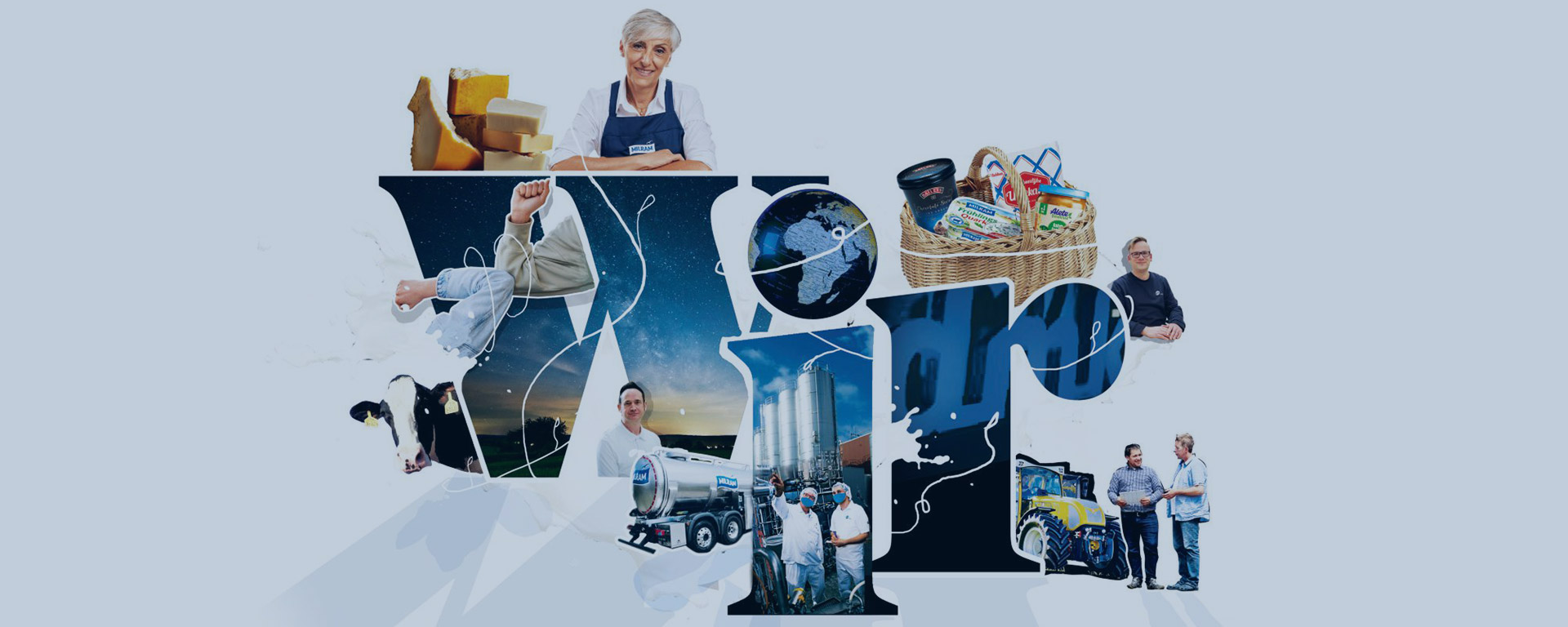Growing together, becoming stronger.


Change is challenging for everyone. It takes time, especially in companies, and willingness, and that only works if everyone feels like part of the team. DMK has made changes in many different parts of the company to forge ahead with Vision 2030. Employees company-wide have learned new skills, made compromises, thought outside the box to implement those changes – and have managed to hold together, even in stormy seas. Thanks to their efforts, we have achieved a great deal. Now, we need to build bridges as a company to see how far that sense of “we” and togetherness has reached our Business Units, DMK’s sites and locations, and our farmers. We need to ask ourselves how well we are working together and how far our employees see themselves as part of a greater whole? How strong is their will to join this process of shaping the company, and how much do they feel appreciated and valued in what they do and in their daily work?
Change was and is under way in every Unit, among the farmers and in production. That isnoticeable in the Netherlands, where two teams are integrating together. As of January 2021, Dutch functions will also use the DMK Group’s 4S model, Administrative Services will be unified, SAP introduced and management structures and Business Units will all be changed. Carsten Klapproth, Head of Global Business Services DMK, leads the international project team “Maxima” and is ensuring this collaboration succeeds. He says what’s important is to keep learning from each other: if a Dutch solution is better than one from Germany, then that should be integrated into the process, and vice versa. “It’s a complex process,” he says. “We have to empathize with each other and try and work out where something could go wrong.” And much could go wrong. After all, sometimes employees were given not only a new boss but also a whole new set of tasks, or a new position in a Unit, possibly in a different country. What Klapproth values most about his Dutch colleagues in this phase of collaboration is their openness and transparency.
From the head of department down to colleagues working in operations, all are feeding their knowledge and experience into the new structures. It meant people had to be open to new systems even if they had never before been tried out in practice. “Our Dutch colleagues are very approachable, they bring with them plenty of team spirit and they speak up openly if they’re concerned about a possible risk,” he says. “Although a large part of the changes have yet to come, they’re motivated and open about what is ahead.” He says that helps him respond to their fears, reservations and concerns and to find ways together to ease them.


Marcus Krapp, Global Head Quality Management at the TIGER project, says the situation is similar for him. One of his responsibilities is giving employees a greater sense of personal responsibility and helping them feel more willing to get involved in decision-making and development processes. He says it’s all about taking an interest in the way another person works, being open and allowing yourself to be inspired, in order to find new solutions.
“Employees themselves should work out how to solve a problem, fix a process or improve an ineffective workflow,” says Krapp. That is not always easy as it was not the standard approach in the past, he says. It will take time for people to internalize this new attitude – but it can work. Now, shopfloor meetings are being held as part of the new TIGER approach. The meetings bring together employees from different departments, who look together at a pin board of documents, diagrams and tables and discuss how to solve a problem together, such as a machine that doesn’t fill up properly. They ask,what can we do about that?
“In the past, that was something only the boss thought about”
Marcus Krapp, Global Head Quality Management
“In the past, that was something only the boss thought about,” says Krapp. “But people who actually work with the machine are much better placed to discover where there’s potential for improvement and to apply that.” To make that work, what’s important is not only employees’ expertise but also team spirit. There are clear rules, too: let people talk without interrupting, be brief and don’t be too quick to judge what other people say. The process is accompanied by the head of department who behaves like a coach, providing some help and key words. The meetings are a great success, says Krapp. “The more participants realised they could share their knowledge to solve a problem, the more they started thinking beyond their own immediate area.”
This new kind of motivation offers a further advantage, too. Employees identify much more with their activities and take responsibility – rather than just because they are asked to. The team used World Quality Day to help boost this kind of motivation. “On that day, quality managers and CI engineers communicated about TIGER and how to steadily keep improving quality. They hung up posters in the plants to get people interested,” says Krapp. “People were told clearly to make suggestions about how to improve things – for any department.” That was a direct nudge to get involved and a way of encouraging employees to talk about this with each other – crucial to a company’s development, he says.
In every part of DMK, working together and supporting one another is becoming more and more important. And that’s something that has to be internalized in order for the company to succeed on the global market, in the face of challenging conditions.
Much change is also under way in the baby food area of business, and here too, teamwork is of the highest order. This is evident in the choice of a new COO, who starts working for the Baby BU in January: Dr. Marc Mahl. CEO Ingo Müller says he is an experienced manager with a positive personality who’s able to inspire global teams, and provide impetus and direction. Over the past few months, Müller acted as interim COO and had many exchanges with employees in the Baby business about numerous topics. That was a very exciting period, he says, and not only because of the subject matter. “I was impressed at my colleagues’ technical expertise and high degree of personal motivation,” he says.
“There’s a real, noticeable willingness to work together”
Ingo Müller, DMK CEO
“They didn’t shy away from open discussions, or the latest market developments, whether dealing with customers, social developments or new plant technology.” He says he feels and expects that employees in the newly-aligned unit will see the changes as an opportunity and a boost. There’s still a way to go before the business unit, which was often isolated, can benefit from the “full power of the Group,” he says. He is confident that the team will carry out these changes, and said people’s willingness to work together was real and noticeable. Carsten Klapproth sums up the approach at the entire DMK Group: “If we listen to each other and learn from each other, then the realization takes root that we can only really work together as a whole.” That – and that alone – is the compass for where the company is now heading.


Only together: To keep up with global competition, we need an enormous desire to change – and a huge amount of team spirit.